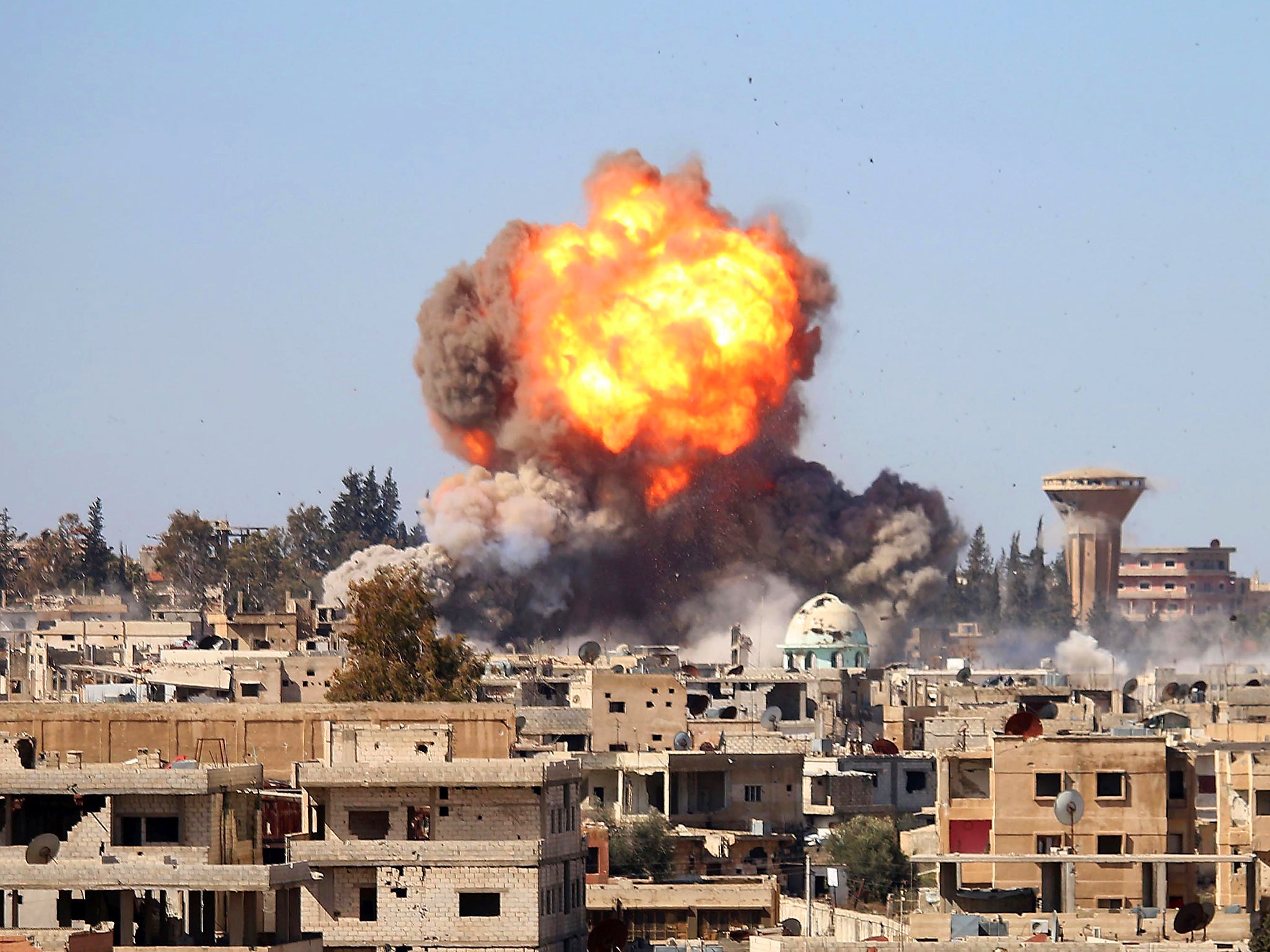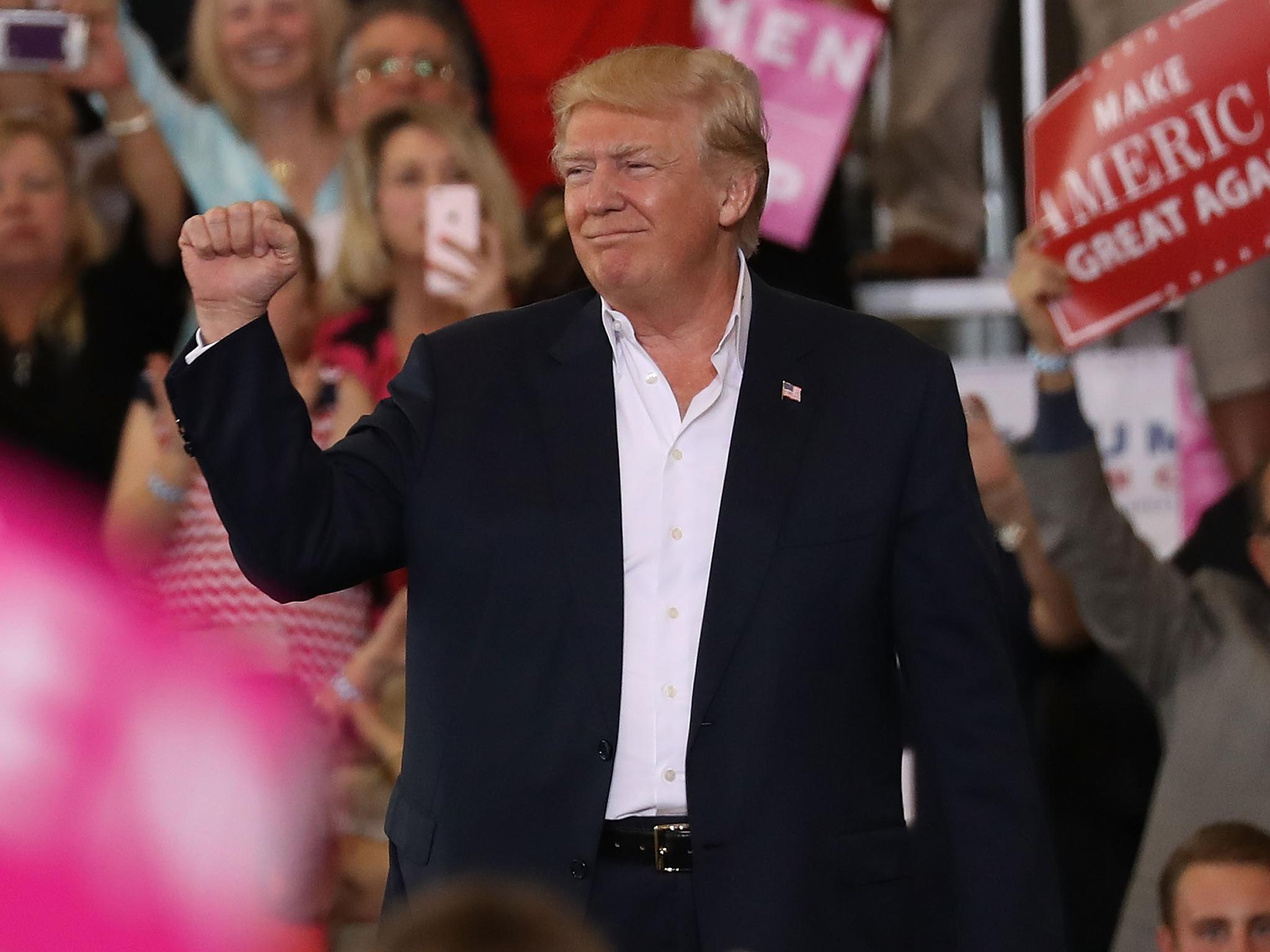Russia open to US plan for Syria 'safe zones' but only with Bashar al-Assad's approval
Proposals raise challenges over military cooperation between warring groups

Your support helps us to tell the story
From reproductive rights to climate change to Big Tech, The Independent is on the ground when the story is developing. Whether it's investigating the financials of Elon Musk's pro-Trump PAC or producing our latest documentary, 'The A Word', which shines a light on the American women fighting for reproductive rights, we know how important it is to parse out the facts from the messaging.
At such a critical moment in US history, we need reporters on the ground. Your donation allows us to keep sending journalists to speak to both sides of the story.
The Independent is trusted by Americans across the entire political spectrum. And unlike many other quality news outlets, we choose not to lock Americans out of our reporting and analysis with paywalls. We believe quality journalism should be available to everyone, paid for by those who can afford it.
Your support makes all the difference.Russia is open to the concept of “safe zones” in Syria, but only if they are approved by Bashar al-Assad.
Sergey Lavrov, the Russian foreign minister, said he had briefly discussed the US-backed plan with Donald Trump’s administration and was told specifics were still being worked out.
“We believe that any such initiatives concerning the territory of Syria need to be coordinated with the Syrian government - otherwise it would be hard to implement them,” he said at a news conference.
“Having described our understanding of what we can talk about, we are waiting for clarifications from Washington.
"We are also ready to discuss other proposals concerning our cooperation in Syria."
Syria's state news agency said that any attempt to establish safe zones in the country without coordination with Damascus would be a violation of national sovereignty.
Mr Lavrov met Rex Tillerson, the US Secretary of State, at the Munich Security Conference in Germany following a speech where he called for a “post-West world order”.
Russia has been at loggerheads with the US, Britain and much of the West over its support for Assad’s government in the Syrian civil war.
The country’s air power and deployment of “military advisors” on the ground has been key to reversing gains made by rebels, including in the battle for Aleppo.
Vladimir Putin characterised the launch of his intervention in 2015 as an operation against Isis and jihadis but observers have accused the Russian air force of committing war crimes by bombing civilian areas controlled by opposition groups.
Barack Obama strongly criticised Russia’s tactics but Donald Trump has been more evasive on the issue, having repeatedly praised the Russian President during his campaign and vowed to improve relations strained by Syria and Ukraine.
The US President has supported the idea of “safe zones” to prevent refuges from leaving Syria, telling a rally of supporters in Florida they would be funded by Gulf nations.
“We’re going to have the Gulf states pay for those safe zones, they have nothing but money,” Mr Trump said.
“And we’re going to do it that way instead of taking massive numbers, tens of thousands of people into our country.”

He discussed the plan with King Salman of Saudi Arabia in January, who reportedly agreed that safe zones were the best way forward in Syria and Yemen, although no concrete plans have emerged.
Mr Putin’s foreign affairs adviser, Yuri Ushakov, said the American and Russian presidents discussed possible cooperation on fighting terrorism along with economic issues in a phone call last month.
The Obama administration assessed the prospect of no-fly zones in Syria to protect civilians from Syrian government air strikes but Russia’s intervention raised the threat that moves to enforce restrictions could trigger a military confrontation between the two countries.
Concerns have also been raised about the logistics of installing the ground forces and air power needed to protect such areas and the cooperation it would require between warring factions.
“Safe areas” were previously set up in Bosnia in the 1990s war, intended to protect Muslim communities from Serb attacks in six designated districts sheltered by UN peacekeepers and air power.
A UN report at the time said the goals included limiting “loss of life and property, deterring aggression, demonstrating international concern and involvement, setting the stage for political negotiations and facilitating the delivery of humanitarian aid”.
One of the zones was Srebrenica, where a Bosnian Serb militia slaughtered thousands of men and boys in an 11-day campaign of genocide in July 1995.
Additional reporting by agencies
Join our commenting forum
Join thought-provoking conversations, follow other Independent readers and see their replies
Comments